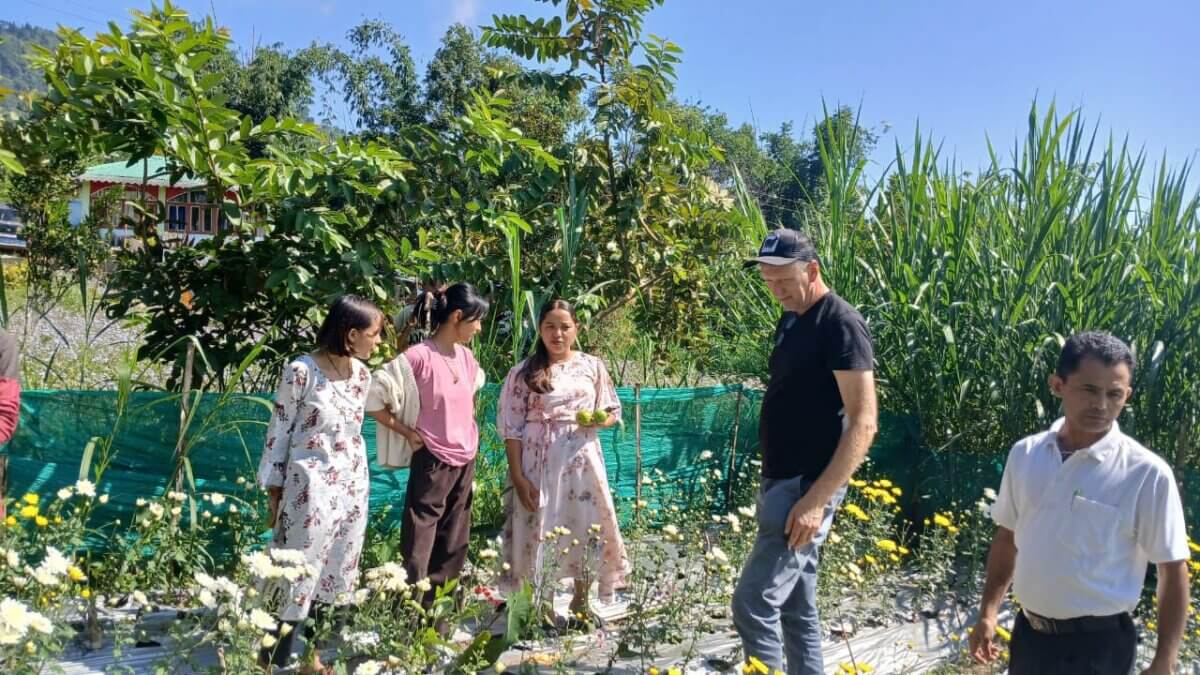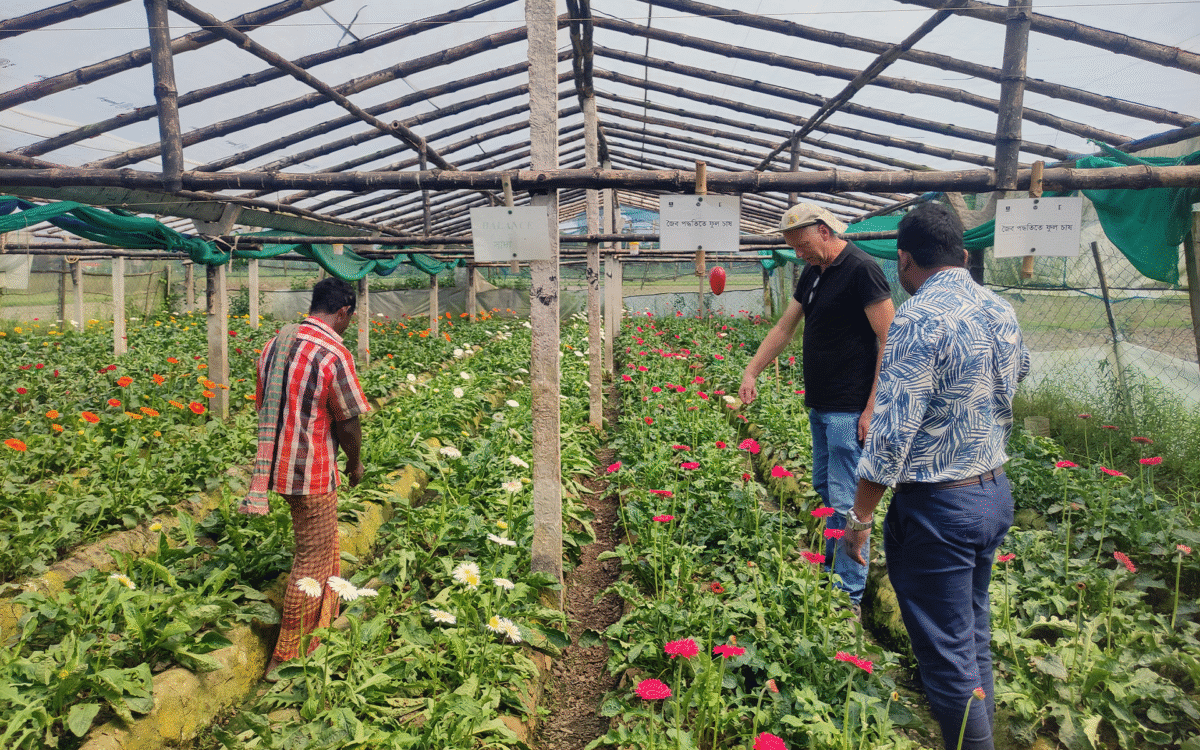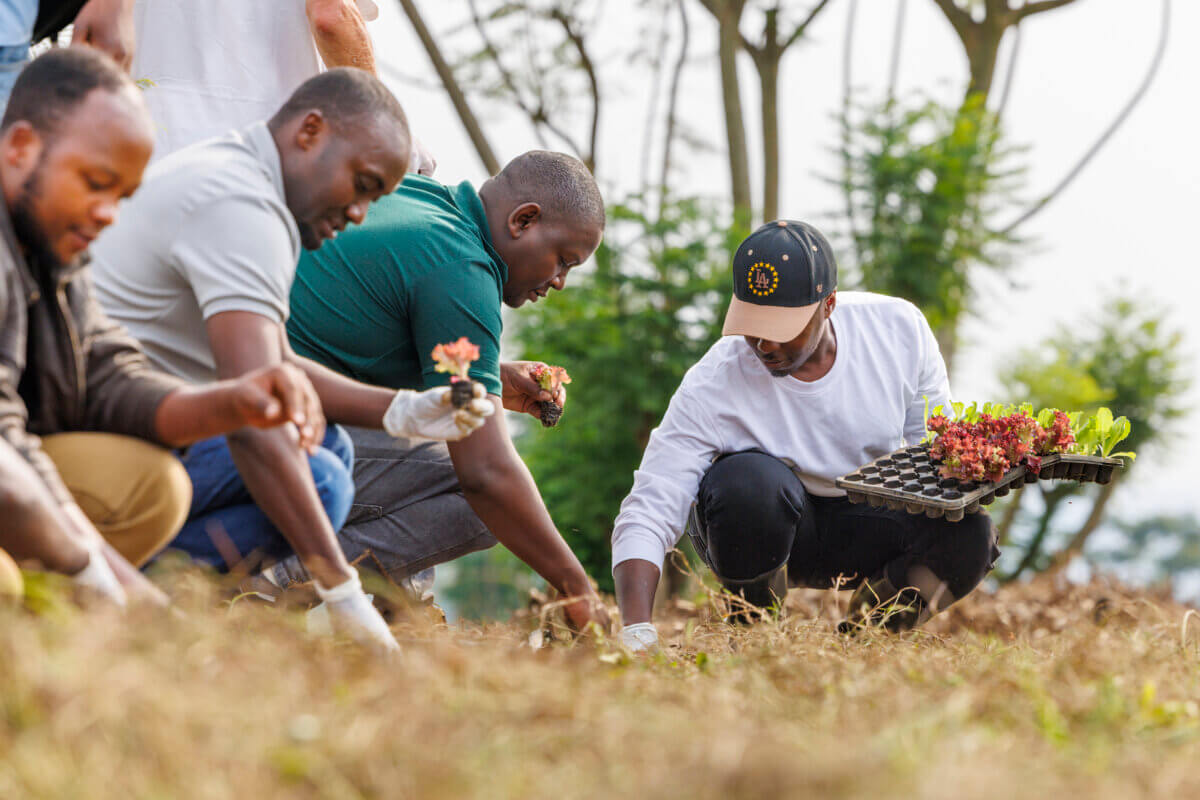- Sectors
- Horticulture
Horticulture
PUM horticultural experts support SMEs with practical, on-site advice across the full value chain, from production, post-harvest to marketing of the produce. With deep technical and entrepreneurial experience, they guide clients, climate-smart methods and market readiness. PUM focuses on sustainable growth, embedding support within long-term programmes and local ecosystems. Expertise spans fruit, vegetable, flower, and herb production, hydroponics, tissue culture, and more.
PUM horticulture experts work alongside local entrepreneurs to tackle challenges like rising costs, climate change, and shifting market demands. With hands-on experience in everything from fruit and flower farming to hydroponics and post-harvest care, they offer practical, tailored advice. By sharing knowledge and focusing on smart, sustainable solutions, PUM helps SMEs improve production, reduce costs, and grow stronger within their local ecosystems.
Sector vision
The Horticulture sector is facing significant challenges in the coming years. While horticulture is often regarded as a more sustainable agricultural practice, it must go further to reduce its environmental impact and conserve scarce resources such as water, energy, and arable land.
SMEs in this sector are confronted with rising production costs, stricter regulatory standards, and the increasing urgency of adapting to climate change. They must improve efficiency and sustainability while maintaining or enhancing product quality to remain viable.
Although the needs of SME clients remain central to PUM’s mission, future horticultural support should be guided by the following strategic themes:
- Food security (production issues);
- Food safety and quality (standards);
- Sustainable, climate smart, good agricultural practices;
- Agri clusters, Agri business parks and Centers of Excellence;
- Value chains and networks;
- Water (quantity and quality).
In many developing countries, SMEs are primarily focused on lowering the cost price per unit of product. This can be achieved by increasing productivity, reducing input use, and improving product quality.
To ensure lasting and meaningful results, PUM engages in horticulture projects that are embedded in longer-term programmes and can be integrated into broader business ecosystems. This systemic approach strengthens local networks, supports structural improvements, and enables more sustainable impact beyond isolated, short-term interventions.
Areas of expertise – From seed to harvest
PUM provides technical advice on all aspects of the following commodity value chains:
- Flowers, bulbs and ornamental plants;
- Aromatic herbs and mushrooms;
- Protected cultivation of vegetables: tomatoes, peppers, cucumbers etc.;
- Production of fruits: strawberries, berries (indoor and outdoor) etc.;
- Field vegetables: carrot, pumpkin, cabbage etc.;
- Nursery production, tissue cultured horticultural crops.
PUM services
Technical Advice
- Soil fertility, fertilisation, compost (production)
- Crop protection, integrated pest and diseases management, application of pesticides
- Water management, irrigation; hydroponic systems
- Post harvest (quality) issues and storage
- Sustainable horticulture (including organic production)
Advice on inputs
- Seeds (varieties)
- Fertilisers, plant protection
- Phytosanitary issues
- Mechanization
- Equipment (including tissue culture laboratories, cold stores etc.)
- Green houses and plastic tunnels
Management consultancy
- Marketing strategy development (in collaboration with PUM sales and marketing experts)
- Business strategy development / planning (in collaboration with PUM management experts)
- Value Chain development and implementation (together with PUM value chain experts)
Advice and training across the full value chain
- Good Agricultural Practices;
- Soil and plant health
- Reducing waste and emissions
- Improving product quality
- Increasing production levels
- Post-harvest handling
PUM clients
Typical PUM clients in the horticulture sector are among others:
- Farmers
- Plant breeders
- Seed producers and other input suppliers
- Machine and equipment suppliers
- Vocational training centres / Universities
- NGOs (intermediate to SMEs)
PUM works with core sectors and enabling sectors.
The core sectors form the heart of PUM’s ecosystem. Within these sectors, we offer strategy and business planning, as well as technical assistance. We distinguish between seven food sectors and six non-food sectors within the core sectors.
To promote our ecosystem approach, core sectors are encouraged to collaborate with each other and with enabling sectors. Together, they form business ecosystems that can create greater impact.
What services do we offer?
Strategy & Business Planning
Eco & Social Transition
Technical Assistance
Learning & Development
Professional people for positive impact
Looking to grow your business or organisation sustainably and build a brighter future for your community? Contact one of our representatives in your country for criteria, more information and guidance on the application process.











